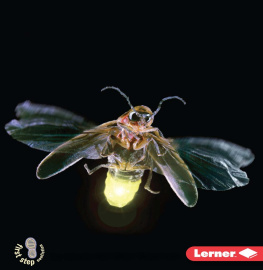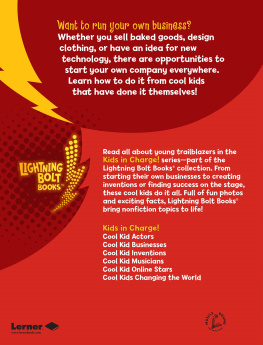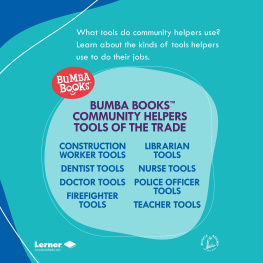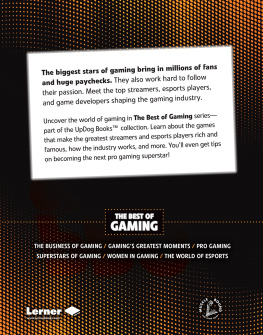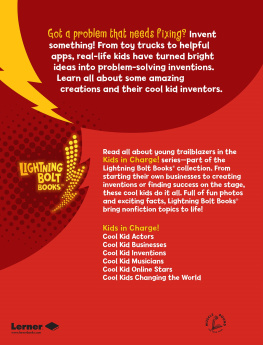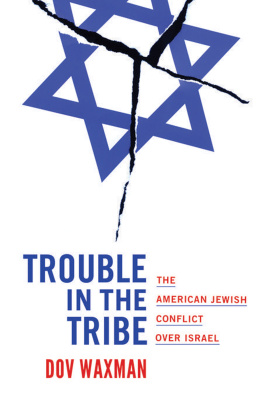Henry Waxman - The Waxman Report: How Congress Really Works
Here you can read online Henry Waxman - The Waxman Report: How Congress Really Works full text of the book (entire story) in english for free. Download pdf and epub, get meaning, cover and reviews about this ebook. year: 2009, publisher: Twelve: Hachette Book Group, genre: Politics. Description of the work, (preface) as well as reviews are available. Best literature library LitArk.com created for fans of good reading and offers a wide selection of genres:
Romance novel
Science fiction
Adventure
Detective
Science
History
Home and family
Prose
Art
Politics
Computer
Non-fiction
Religion
Business
Children
Humor
Choose a favorite category and find really read worthwhile books. Enjoy immersion in the world of imagination, feel the emotions of the characters or learn something new for yourself, make an fascinating discovery.

- Book:The Waxman Report: How Congress Really Works
- Author:
- Publisher:Twelve: Hachette Book Group
- Genre:
- Year:2009
- Rating:3 / 5
- Favourites:Add to favourites
- Your mark:
- 60
- 1
- 2
- 3
- 4
- 5
The Waxman Report: How Congress Really Works: summary, description and annotation
We offer to read an annotation, description, summary or preface (depends on what the author of the book "The Waxman Report: How Congress Really Works" wrote himself). If you haven't found the necessary information about the book — write in the comments, we will try to find it.
The Waxman Report: How Congress Really Works — read online for free the complete book (whole text) full work
Below is the text of the book, divided by pages. System saving the place of the last page read, allows you to conveniently read the book "The Waxman Report: How Congress Really Works" online for free, without having to search again every time where you left off. Put a bookmark, and you can go to the page where you finished reading at any time.
Font size:
Interval:
Bookmark:
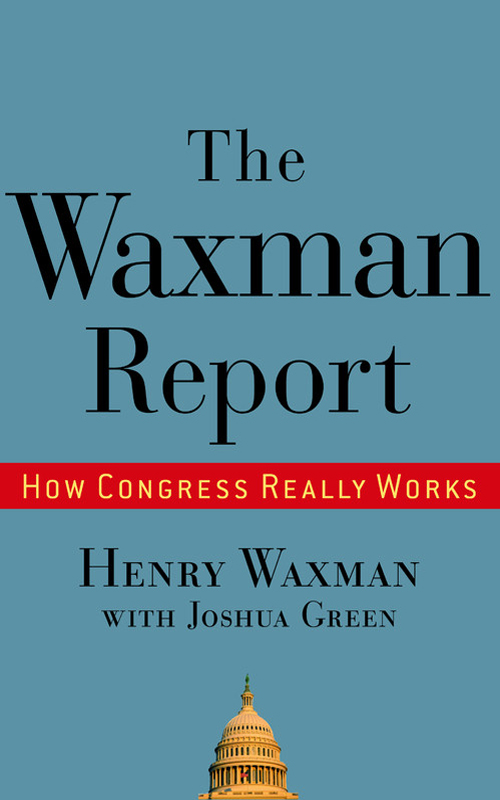
Copyright 2009 by Henry Waxman
All rights reserved. Except as permitted under the U.S. Copyright Act of 1976, no part of this publication may be reproduced, distributed, or transmitted in any form or by any means, or stored in a database or retrieval system, without the prior written permission of the publisher.
Twelve
Hachette Book Group
237 Park Avenue
New York, NY 10017
Visit our website at www.HachetteBookGroup.com.
www.twitter.com/grandcentralpub
Twelve is an imprint of Grand Central Publishing.
The Twelve name and logo are trademarks of Hachette Book Group, Inc.
First eBook Edition: July 2009
ISBN: 978-0-446-54567-9
To my wife and life-partner, Janet, whose love and devotion has been the single best thing that has happened to me; to my daughter, Shai Abramson; to my son, Michael Waxman, and daughter-in-law, Marjorie Waxman; and to my grandchildren, Ari, Maya and Noa Abramson, and Eva and Jacob Waxman, who mean the world to me.
During my thirty-five years in Congress, Ive been involved in hundreds of hearings. Many were forgettable. A handful have had lasting impact. And one, on April 14, 1994, stands among the great Washington dramas. Like the McCarthy and Watergate hearings, it has assumed a place in popular mythology as a turning point in our national history that lives on in textbooks and Hollywood movies.
On that morning, in a hearing room of the House Energy and Commerce Committee, the CEOs of the nations seven largest tobacco companies assembled for the first time to testify before Congress. I had summoned them there in my capacity as chairman of the Subcommittee on Health and the Environment to answer questions about the $61 billion industry they controlled and the 440,000 people who died every year as a result of its products. It was a showdown that had been years in the making.
The life of a congressman is often one of painstaking process. You endure the daily grind of committee meetings, markups, and hearings in order to build the foundation that all great legislation requiresfrom landmark measures like the New Deal, the Civil Rights Act, Medicare and Medicaid, to major new initiatives like climate change legislation and universal health care that could soon be enacted. You persevere so that those who abuse the public trust will be held to account. But mostly you do it for the rare and fleeting occasions when your actions might improve the lives of millions of your fellow Americans.
For years, tobacco had been a crisis that screamed out for government oversight, and as chairman of the House subcommittee responsible for overseeing the public health it was my job to address it. This didnt make me popular. A staffer for a Republican colleague from Virginias tobacco country had an ashtray in his office with my picture at the bottom for stubbing out his cigarettes. But the Centers for Disease Control and Prevention had declared tobacco the single largest preventable cause of death and disability in the United States. Yet for forty years, Congress had allowed the tobacco industry to operate with impunity. Since 1953, scientists had known that tobacco caused cancer in rats. But despite thousands of studies and overwhelming scientific consensus about its deadly effects, the industrys Washington lobby was so powerfully entrenched that tobacco effectively stood beyond the reach of the government to regulate or control.
In 1994 nearly twenty years had passed since I arrived in Washington as a young congressman from Los Angeles, and during that time I had seen firsthand how the tobacco industry manipulated Washington: how it spread enormous sums of money to both Republicans and Democrats; how it attempted to silence representatives of minority communities (whose members tobacco kills more quickly than the broader public) with lavish grants for local charities and arts programs; how it created the illusion of scientific authority by funding pseudoscientific outfits like the Council for Tobacco Research that The Wall Street Journal called the hub of a massive effort to cast doubt on the links between smoking and disease; and especially how the CEOs had shrewdly hidden themselves from view, instead putting forward these dubious experts and advertising icons like Joe Camel and the Newport Kids to serve as the public face of this deadly industry.
By inviting the CEOs to testify, I hoped to change that image and expose the men who controlled this deadly business to the full glare of the public spotlight. Many people had struggled for many years to lay the groundwork necessary for this day to happen.
Congress is held in low regard by much of the public, which tends to view its members as officious or inept. But most of the critics I encounter lack a full appreciation for what Congress really does. The Constitution confers powers on its members that, when properly deployed, can yield widespread benefits to all Americans. Tobacco is a good example. Over the years, my staff and I had done all we could to establish a public record of tobaccos harm and build what we hoped would become the necessary pressure to finally force government action. We had won some small skirmishes, narrowly passing legislation requiring warning labels on cigarettes and banning smoking on airplanes. In 1993, when the Environmental Protection Agency proved the deadly effect of secondhand smoke, I had introduced a bill banning smoking in public buildings, and then led a hearing in which the last six surgeons generalfour Republicans and two Democratstestified in support of it. Soon afterward, McDonalds announced plans to ban smoking in its restaurants, and so did the United States military.
Evidence had recently begun to leak from inside this notoriously secretive industry that companies were marketing to kids and spiking the level of nicotine in cigarettes to keep smokers addicted. This, too, had prompted a hearing just weeks before the CEOs had their turn. David Kessler, the commissioner of the Food and Drug Administration, had testified that cigarettes were high-technology nicotine delivery systems, and he let it be known that the FDA was considering regulating tobacco, citing the reports of nicotine spiking as justification. Gradually but inexorably, my congressional allies and I had used the levers of government power to create national momentum to confront this vital issue.
All of this fed the growing awareness of tobaccos dangers. By April 1994, 91 percent of Americans believed that cigarettes were addictive. The tobacco industry, as it always did, used its considerable money and influence to strike back. In the months before the CEOs testified, the industry had sued the EPA for its report on secondhand smoke and the city of San Francisco for banning public smoking, and then it filed a $10 billion libel suit against ABC for its reports on nicotine spikingall in an effort to intimidate and silence critics. What had finally compelled the CEOs to come out of the shadows and testify was the mounting pressure we had managed to create. Now, the full weight of the tobacco industry was about to strike at us.
THIS WAS A POSITION I WAS WELL ACCUSTOMED TO. NEARLY EVERY worthwhile fight in my career began with my being badly out-matched. The other guys always have more money. Thats why Congress is so important. Run as it should be, it ensures that no special interest can ever be powerful enough to eclipse the public interest. The story of the tobacco fight, and many others like it, is testimony to how Congress can work for the greater good.
Sadly, the view of government as a positive force that serves its people is one that has all but vanished since I first ran for office. Today, disdain for government is so strong that it has given rise to the idea that Congress in particular cannot do much of anything right. This cynical outlook has been nurtured by a thirty-year-long crusade led by ideological conservatives to turn the American people against their elected officials by continually disparaging them and all that they do. Ronald Reagan epitomized this attitude when he declared, The scariest words in the English language are, Im from the government and Im here to help.
Font size:
Interval:
Bookmark:
Similar books «The Waxman Report: How Congress Really Works»
Look at similar books to The Waxman Report: How Congress Really Works. We have selected literature similar in name and meaning in the hope of providing readers with more options to find new, interesting, not yet read works.
Discussion, reviews of the book The Waxman Report: How Congress Really Works and just readers' own opinions. Leave your comments, write what you think about the work, its meaning or the main characters. Specify what exactly you liked and what you didn't like, and why you think so.


